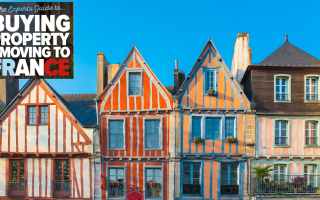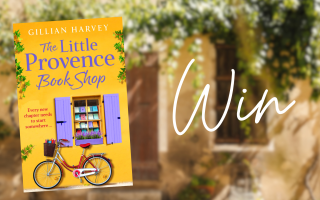Handing down a French Property
Giving your French property to your children may reduce inheritance tax but there are pitfalls, says Matthew Cameron…
Not surprisingly, in the current climate we have seen an increase in the number of clients who are looking to gift their French properties. As the world moves through this recession, as sterling remains weak against the euro, we may expect to see fewer purchases in France, and an increase in the number of sales. A family with a suitable sum of cash may currently be a little more reluctant to invest this in a holiday home than it would have been a couple of years ago. With many people tightening their belts, and with lending a little harder to organise, buyers are a little more reluctant to increase their mortgage in Britain or France. People in need of cash, or those with a sharp eye on the benefits of selling when the euro is strong, have thought about moving their French property on – often to French buyers. Yet we have also seen a good deal of people looking to pass their property to their children. Perhaps this reveals the fact that in such times many people will also give closer attention to their affairs, and also how best to limit an eventual inheritance tax liability. Certainly, the more that one gives to one’s children now, the less should be included in one’s estate at the time of death, and therefore the less inheritance tax there will be to pay by the estate. So a gift to children now can be of great benefit in the long run. But there are a number of restrictions on this gift of French property. Completed incorrectly, the whole point of the donation to children would be completely lost. It is relatively common practice for French residents, when considering gifting property to their children, to make a donation of the nuepropri�t�, retaining an usufruit for themselves. An usufruit, as many readers will already appreciate, equates for these purposes to a life interest. The nue-propri�t� is the interest that remains once an usufruit is granted, often referred to as bare ownership or reversionary interest. This means that the person with the reversionary interest is an owner of the property but he has no rights of occupation: those rights are reserved for the usufruitier.
Double tax treaty The benefit under French law in this structure is that upon the death of the usufruitier, his life interest simply lapses. It follows from this lapse that the person who had the reversionary interest then becomes the absolute owner. In doing this he has not actually inherited anything from the now deceased usufruitier, so there is no inheritance tax to pay on that death. This then becomes very attractive for French estate planning purposes. So for those readers who are French resident, this may be an interesting option: it is the fact of residency that is important, not the nationality of the parties. However, where the donor is a UK resident, then extra caution is required. The problem is actually one of English law. If one is a UK resident, then one’s estate will be subjected to UK inheritance tax upon death. It is not relevant that part of the estate may be situated in another country, the whole of the estate is subjected to UK inheritance tax nevertheless – although the double tax treaty that exists between the UK and France will ensure that the same tax is not paid twice. So if on a person’s death, he leaves a property in France as part of his estate but was permanently resident in the UK, then this will result in inheritance tax being payable in France on the value of the property as a first step. Then the whole of the estate is taxable in the UK, including the French house; however the amount of tax already paid in France is deducted from the overall tax bill in the UK. As mentioned above, there is no inheritance tax to pay in France on the death of a person who holds only an usufruit in the French property.
Share to: Facebook Twitter LinkedIn Email


